Results
-
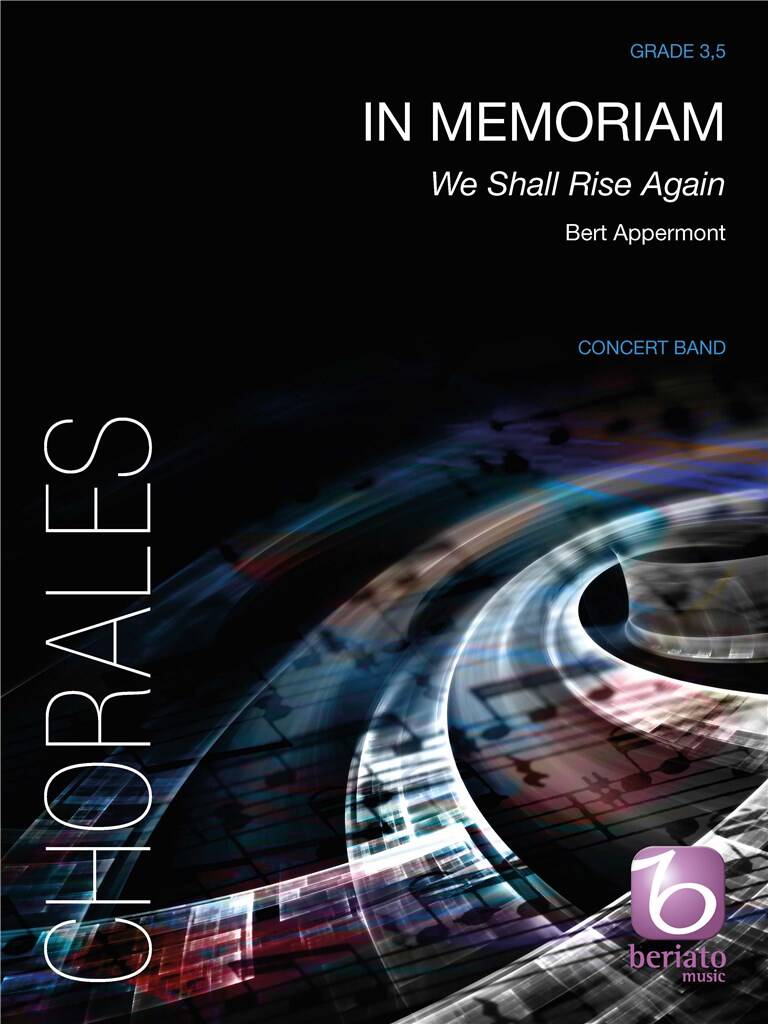 £104.99
£104.99In Memoriam - Bert Appermont
The terroristic attacks in Paris, Brussels, Nice and Berlin shocked many people and lead to fear, mistrust and unbelieve. To express these emotions, Bert Appermont composed a beautiful and sensitive In Memoriam.He used parts of the children's' song Au Claire de la Lune as a symbolic reference to the innocence that was suppressed by these events. He combined this with a lyrical melody which expresses the hope for a better world. A touching and reflective moment for your concert.
Estimated dispatch 7-14 working days
-
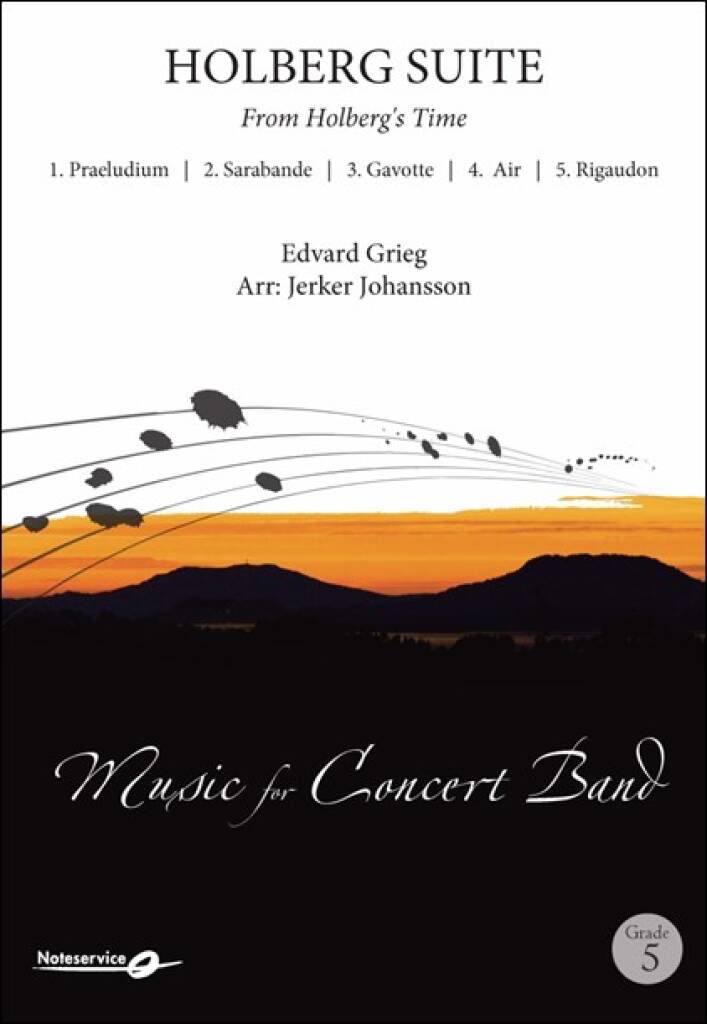 £252.10
£252.10Holberg Suite - Edvard Grieg
Edvard Hagerup Grieg (1843-1907) was a Norwegian composer and pianist. He is widely considered one of the leading Romantic era composers, and his music is part of the standard classical repertoire worldwide. His use and development of Norwegian folkmusic in his own compositions put the music of Norway in the international spectrum, as well as helping to develop a national identity. Grieg is regarded as simultaneously nationalistic and cosmopolitan in his orientation, for although born in Bergenand buried there, he traveled widely throughout Europe, and considered his music to express both the beauty of Norwegian rural life and the culture of Europe as awhole.1884 was the bicentenary year of the birth of Ludvig Holberg (1684-1754)and as a part of the celebrations various Scandinavian composers were commissioned to write commemorative pieces. From Holbergs Time was one of Griegs contributions. It was first written for piano but in 1885 the composer transcribed it for stringorchestra. For his suite Grieg went back to some of the musical forms used by Holbergs contemporaries but although the forms and style may be rococo the contents are unmistakably characteristic of Grieg himself. Grieg gave the first performance ofthe piano version in Bergen, Holbergs birthplace, in December 1884.
Estimated dispatch 7-14 working days
-
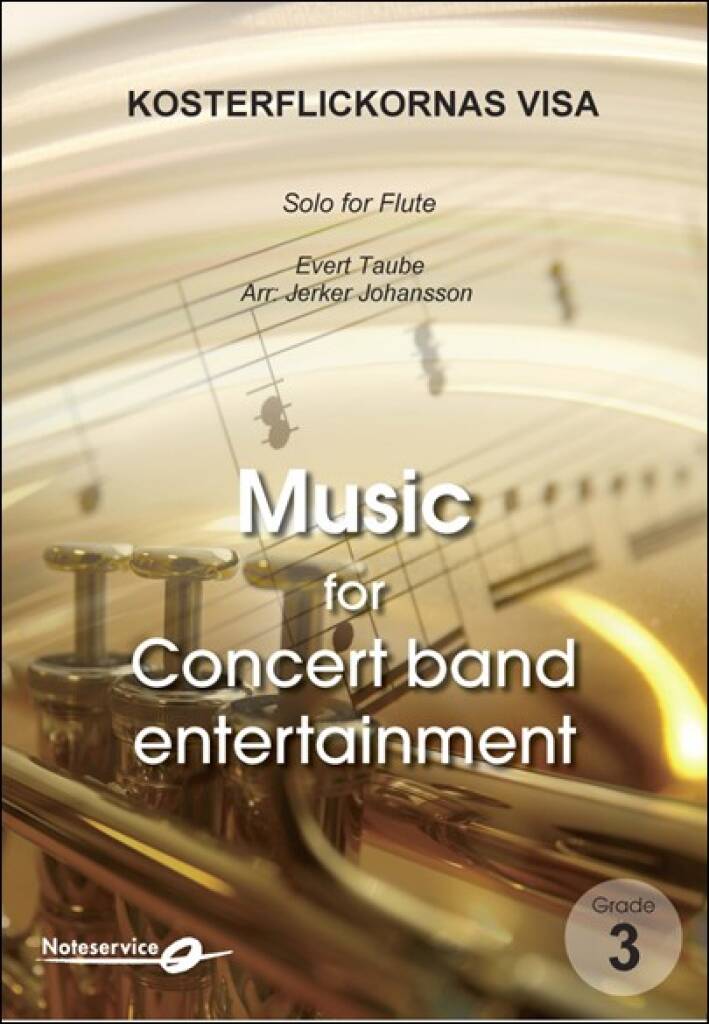 £137.70
£137.70Song of the Koster Girls - Evert Taube
The author of Kosterflickornas visa "the Song of the Koster Girls" is Evert Taube (1890-1976). It is one of the 200 popular and beloved songs he wrote and which have made him one of Sweden's "national poets". His popularity and greatness is madeevident since he is honoured to be on the new 50 Kronor banknote which will be issued during 2015. The Koster islands are the most westerly inhabited part of Sweden. The islands are situated in the northern part of the county Bohusln, not far fromthe Norwegian border. The song text goes:Here is the sea that embraces our Bohusln islandsand carries our father and brother in a rocking boat.Come to the beach, come with me, come singby my sideout over Skagerack inthe calm summer night.The arrangement for flute and wind band is written by Jerker Johansson (born 1967), who is conductor of the Gteborg Wind Orchestra, which has made a CD-recording of the song with Evert Taube's son Sven-Bertilinterpreting his father's work.
Estimated dispatch 7-14 working days
-
£228.70
Dirty Dancing - Torstein Aagaard-Nilsen
In November 2014, the conductor Peter Szilvay, on behalf of Christiania Wind Ensemble (Oslo), commissioned a piece from me. He was looking for a quite short piece of music, effective, intense and dance-like.He mentioned A Short Ride in a Fast Machine by John Adams, and I answered his request by writing my piece, Dirty Dancing. It is a rather easy listening piece that play with riffs and rhythms.Szilvay did not conduct the premiere of the piece. Trond Huseb took over and conducted the premiere the 7th of March 2015 in Oslo.
Estimated dispatch 7-14 working days
-
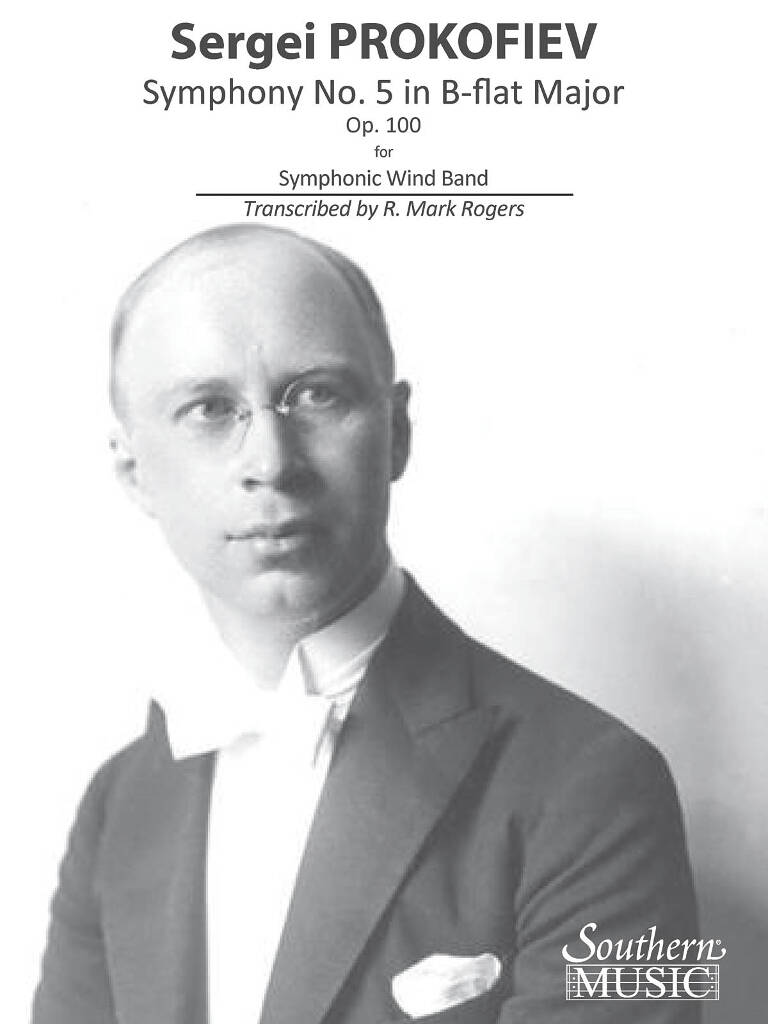 £356.00
£356.00Symphony No. 5 in B-flat Major, Op. 100 - Sergei Prokofiev
Written in a single summer month while World War II was still raging in 1944, Prokofiev's Symphony No. 5 would become not only one of the composer's most celebrated and performed works, it would stand among the giants in all of 20th Century classical compositions. Cast in four movements, Prokofiev once gave a statement that he intended it as a hymn to free and happy Man, to his mighty powers, his pure and noble spirit. He added, I cannot say that I deliberately chose this theme. It was born in me and clamoured for expression. The music matured within me. It filled my soul. Deliberate or not, his statement likely helped placate the Communist Soviet Party, who under Stalin ruthlessly, and often fatally, censored the art and music of the time. This Southern Music publication represents the first complete band transcription of Prokofiev's monumental work by one of the world's most respected wind band editors, Dr. R. Mark Rogers. The edition provides a rare opportunity in the symphonic wind band repertoire for ensembles to perform an orchestral masterpiece in its entirety.
Estimated dispatch 7-14 working days
-
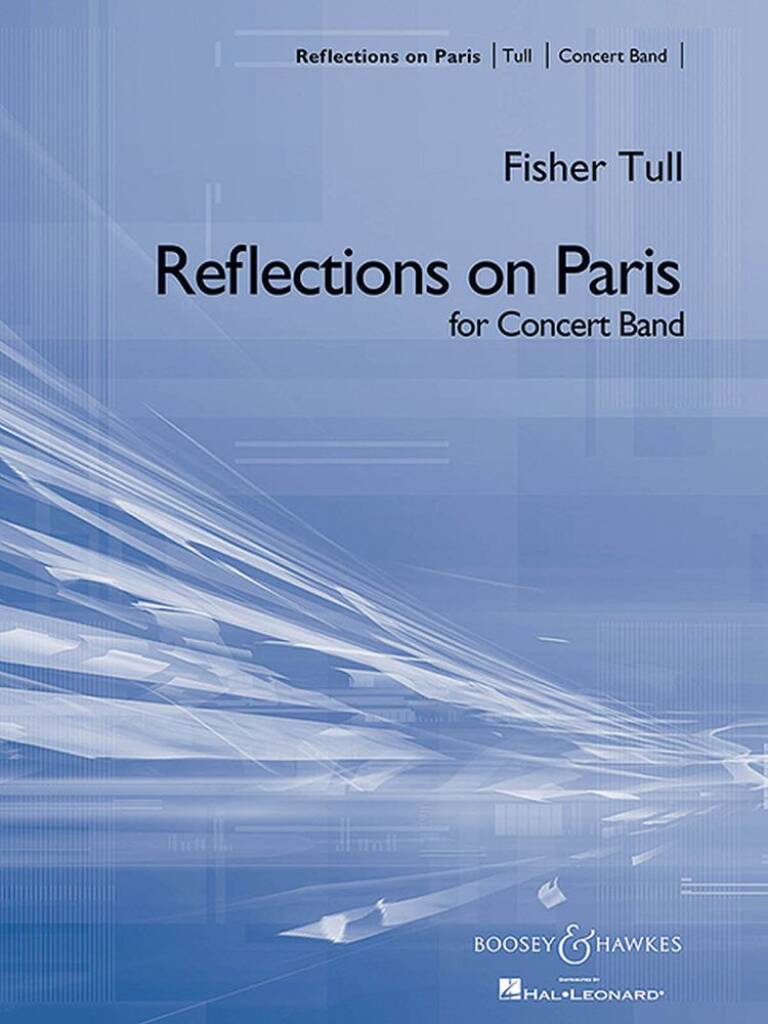 £107.50
£107.50Reflections on Paris - Fisher Tull
Reflections on Paris is the result of the composer's visit to the city in the summer of 1972. During one day of his stay in the city, he had the occasion to visit the Louvre, after which he strolled through the Tuileries Gardens,past the Place de la Concorde and up the Grand Avenue des Champs-Elysees to the Arc de Triomphe. The specific impressions of this excursion gave rise to the present programmatic composition. (15:00)
Estimated dispatch 7-14 working days
-
£76.99
Slztaler March - Reiner Lüghausen
Reiner Lghausen composed this march in the early Seventies and it has never before been published. He gave the work this title because he actually comes from the valley of the same name in Germany. The most important sources of inspiration were the typical American military marches, the undertones of which you will certainly recognise.
Estimated dispatch 7-14 working days
-
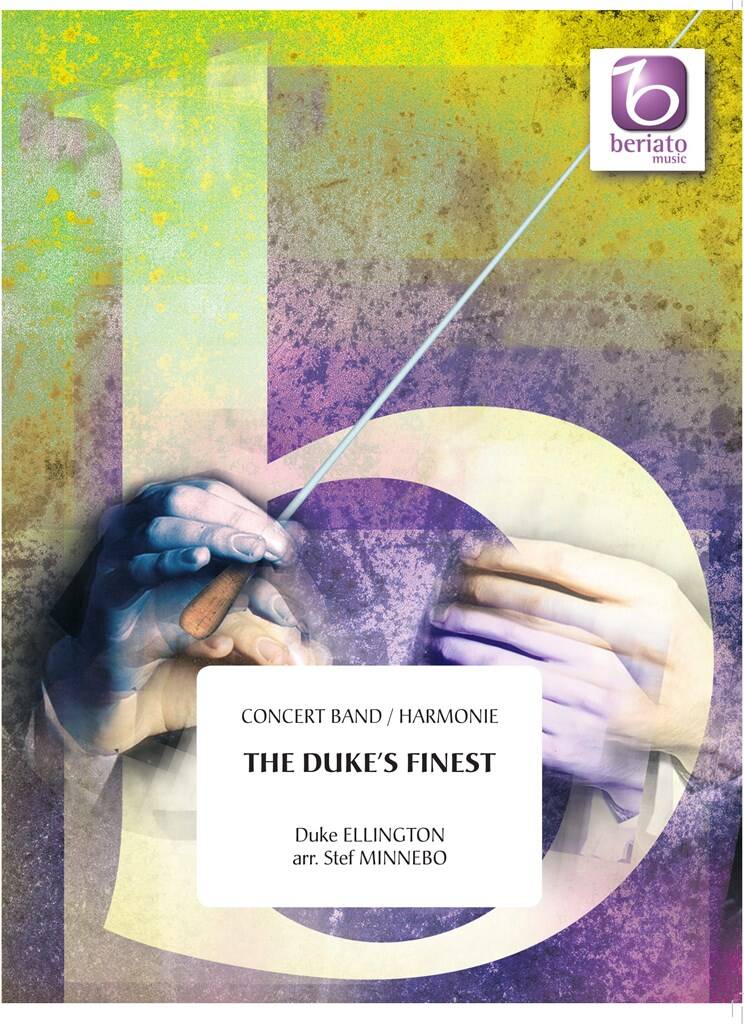 £109.99
£109.99The Duke's Finest - Duke Ellington
Duke Ellington (1889- 1974) was a very successful American pianist, conductor, composer and arranger. His orchestra existed for decades and was able to survive thanks to the enormous hits that he and his collaborators wrote. Many of those songs now belong to the standard repertoire of jazz musicians.Billy Strayhorn (1915-1967) was arranger and composer with the orchestra from 1939, and also wrote Take the A-Train, which became the band's favourite song from 1941. Many recordings were made of it. Juan Tizol (1900-1984, valve trombone) played with Duke Ellington almost his entire career and composed Latin songs for the orchestra. He is co-composer of Caravan and Perdido.Just likein the original Duke Ellington concerts, the medley begins with Take the A-Train, followed by a number of classics from the repertoire of the legendary orchestra. In some songs there are soloists, notable a solo on kettledrums in C- Jam Blues. This solo can also be improvised.When rehearsing a lot of attention has to be paid to the drum and bass, which together form the rhythm section and drive the orchestra on. The other sections have to be tight and create a coherent swing effect. The swing shouldn't be too stiff, and can vary per song. For example in "In a Sentimental Mood", the melody can be played almost straight (classically), while the rhythm section continues swinging.
Estimated dispatch 7-14 working days
-
£102.99
Classic Pop In Concert - James Mark
Helmut Lotti's popularity began many years ago with his Elvis imitations. In the meantime, he has become internationally renowned and sold millions of CDs. At the moment, he is probably the most well known Flemish artist of all time. Filip Sandras has composed a medley of songs from one of his shows. These are 'La Adelita', 'Suspicious Minds', 'Sten'ka Rasin' and 'House of the Rising Sun'.
Estimated dispatch 7-14 working days
-
£76.99
Club Paradiso - Sven Van Calster
Club Paradiso is a work by Sven Van Calster, written in his well-known, approachable style. He composed this work in the hotel of the same name during a holiday in Alanya, Turkey. He paid special attention to an even distribution of the most enjoyable passages amongst all the parts of the orchestra, and also took care of the necessary duplications so that most orchestras are able to play the piece.
Estimated dispatch 7-14 working days
